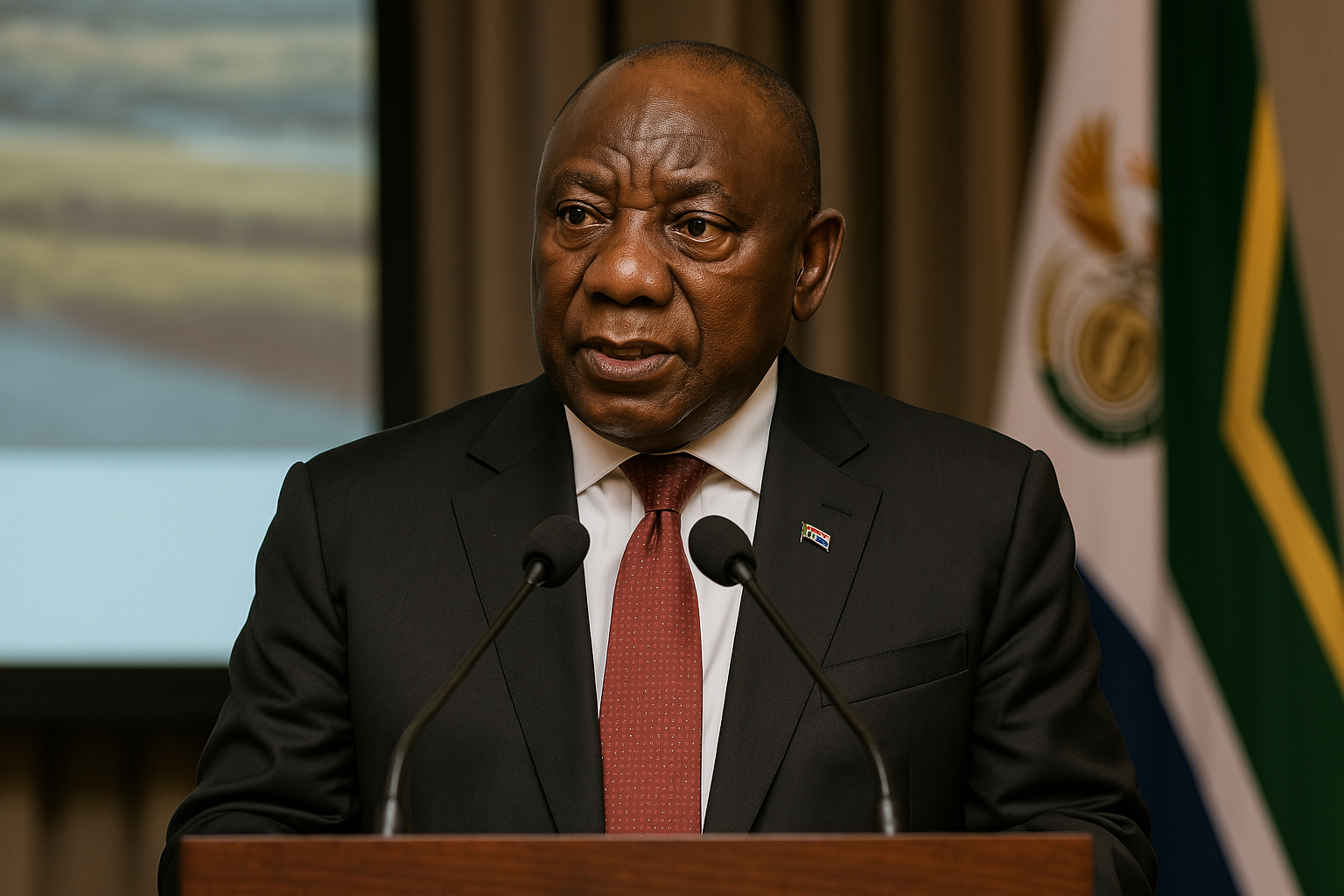Ramaphosa Urges Urgent Water Security Plan Aligned with Development Goals
In his keynote address on the opening day of the two-day Indaba, Ramaphosa made it clear that addressing water security is no longer optional, but an urgent priority.

- Country:
- South Africa
President Cyril Ramaphosa has called for the swift implementation of a high-level national turnaround plan on water security, emphasizing that it must be aligned with South Africa’s Medium-Term Development Plan for 2025 to 2029. The President delivered this directive at the Water and Sanitation Indaba currently taking place at the Gallagher Convention Centre in Midrand, Gauteng.
Aligning Water Security with National Development
In his keynote address on the opening day of the two-day Indaba, Ramaphosa made it clear that addressing water security is no longer optional, but an urgent priority. “What is needed is an urgent and high-level national turnaround plan on water security that is firstly aligned to the Government of National Unity’s Medium-Term Development Plan 2025 to 2029, and secondly, that harnesses the momentum of the reforms in the sector," he said.
He noted that Operation Vulindlela—an initiative of the Presidency and National Treasury to accelerate structural reforms—has already placed a strong focus on water sector reform. These include improving water quality, unlocking investment in water infrastructure, and strengthening regulation to ensure sustainable water use.
Key Achievements and Progress in the Water Sector
Under the sixth administration, the Department of Water and Sanitation reinstated the drop water quality monitoring system, an essential mechanism for ensuring that water resources are safe, especially in regions where water is integral to economic sectors such as tourism and agriculture.
The President reported a marked improvement in administrative efficiency, revealing that 75% of water use license applications are now processed within 90 days—an achievement supported by the recruitment of 110 technical and scientific personnel to boost operational capacity.
Additionally, the publication of the Raw Water Pricing Strategy in 2023—following a reform process initiated in 2022—is aimed at promoting transparency and efficient pricing in the water sector. “This strategy will enhance investor confidence and promote a culture of accountability and cost-efficiency in water usage,” said Ramaphosa.
Legislative and Institutional Reforms on the Horizon
As part of a broader effort to reform water governance, President Ramaphosa announced the upcoming Water Services Amendment Bill, which will introduce a licensing system for water service providers. The bill will also include provisions to revoke licenses of providers who fail to meet set standards for delivering clean, safe drinking water.
A cornerstone of future water sector reforms is the anticipated establishment of the National Water Resource Infrastructure Agency in 2026. “This agency will bring strategic alignment, consistency, and accountability to the institutional arrangements for water stewardship—an area that has struggled with fragmentation and inefficiency,” Ramaphosa stated.
Local Government in the Spotlight
Despite national reforms, the President stressed that meaningful progress depends on the performance of municipalities. He noted that many local governments are failing to fully utilize ring-fenced funding tools such as the Municipal Infrastructure Grant (MIG) and the Urban Settlements Development Grant (USDG) to improve local water infrastructure.
He challenged local leaders to develop and implement turnaround strategies for their respective Water Services Authorities, adding that without strengthened local government, broader structural reforms cannot be effectively implemented.
Municipal Interventions and Strategic Oversight
The President pointed to the Presidential eThekwini Working Group as a model for municipal-level intervention, describing it as a successful initiative in addressing longstanding water and sanitation backlogs in KwaZulu-Natal.
Oversight from the Presidential Water Task Team will continue to play a key role in monitoring delivery and supporting interventions across the country. These teams aim to hold both government entities and private sector partners accountable for delivering results.
Collaboration: A Shared Responsibility
Ramaphosa emphasized the importance of collaboration between national, provincial, and local government entities, as well as the private sector and civil society, in solving the country’s water challenges. “Water is a shared resource. Its management and preservation must be approached as a shared responsibility,” he stated.
He urged attendees of the Indaba to move beyond diagnosing problems, which have already been extensively documented, and focus on implementing practical solutions that will improve access to water and sanitation services, enhance infrastructure quality, and bring stability and efficiency to the sector.
Charting a Clear Path Forward
In his closing remarks, President Ramaphosa expressed hope that the Water and Sanitation Indaba would be a turning point in South Africa’s ongoing struggle with water insecurity. “This Indaba must not become an exercise of problem-diagnosing: the challenges are well-known. What is needed is a course correction—and a comprehensive plan,” he concluded.
The plan, he said, must be bold, strategic, and actionable—prioritizing access, quality, governance, and sustainability—to ensure every South African enjoys their constitutional right to clean water and dignified sanitation services.
- READ MORE ON:
- Cyril Ramaphosa










